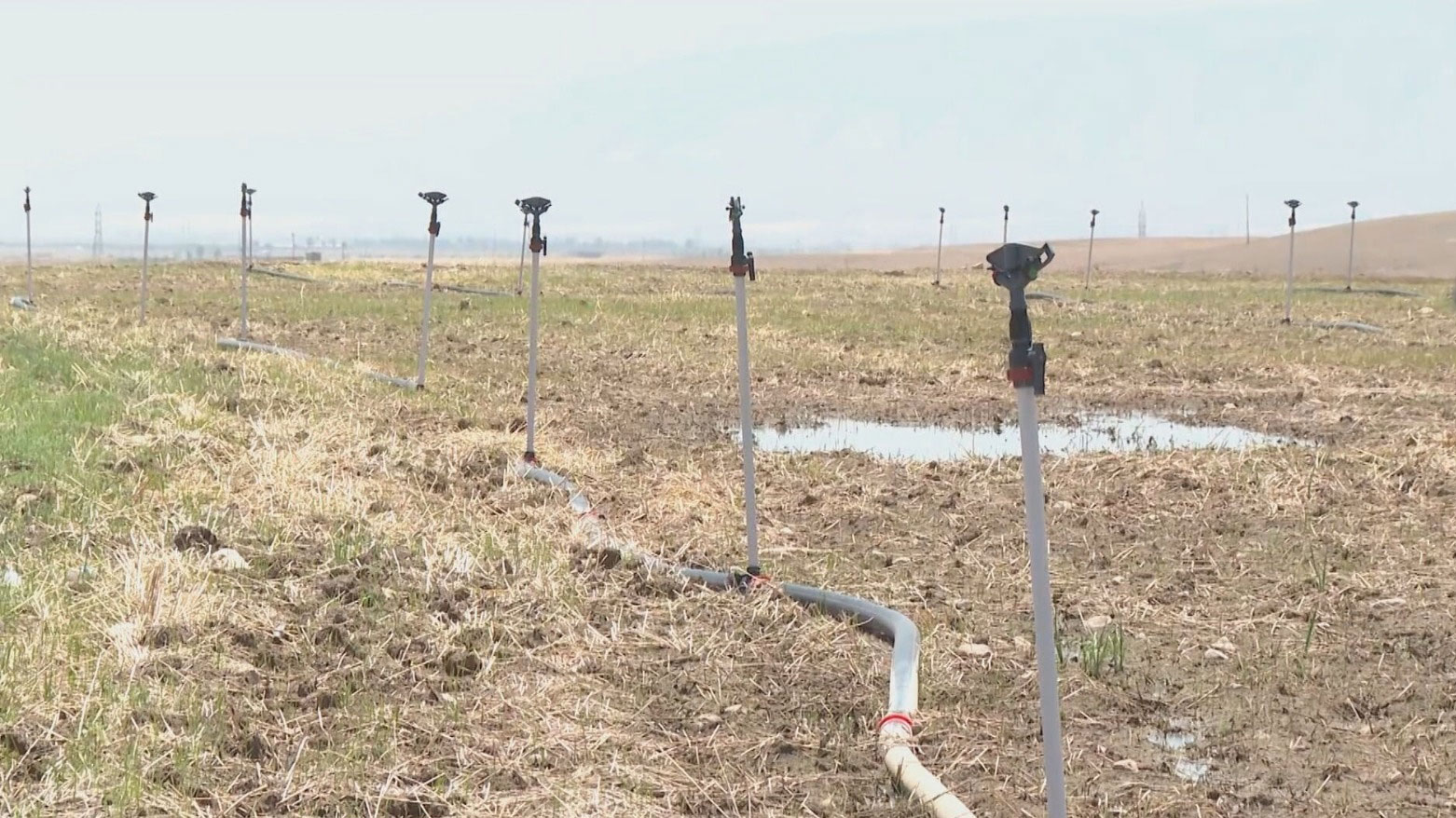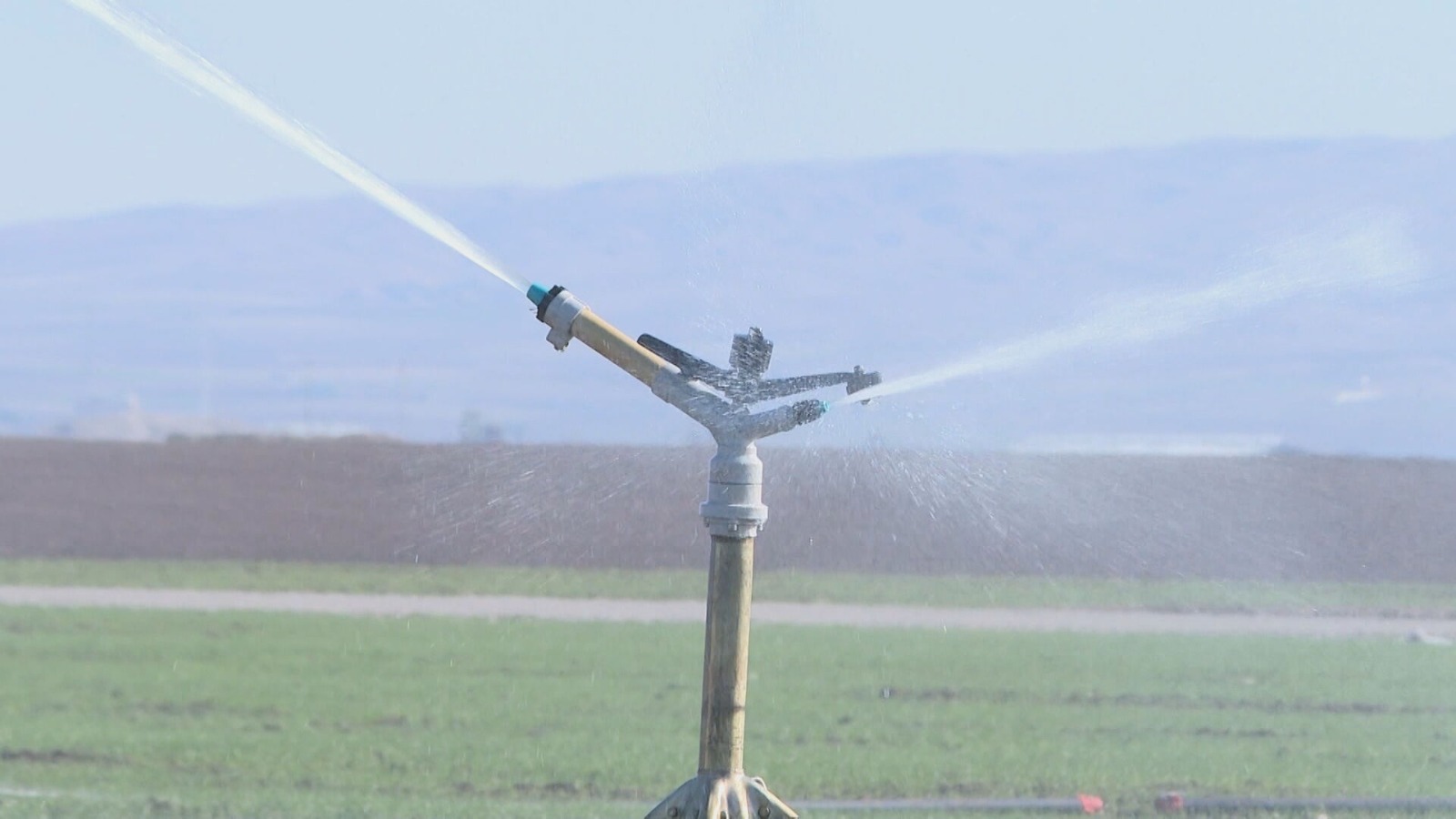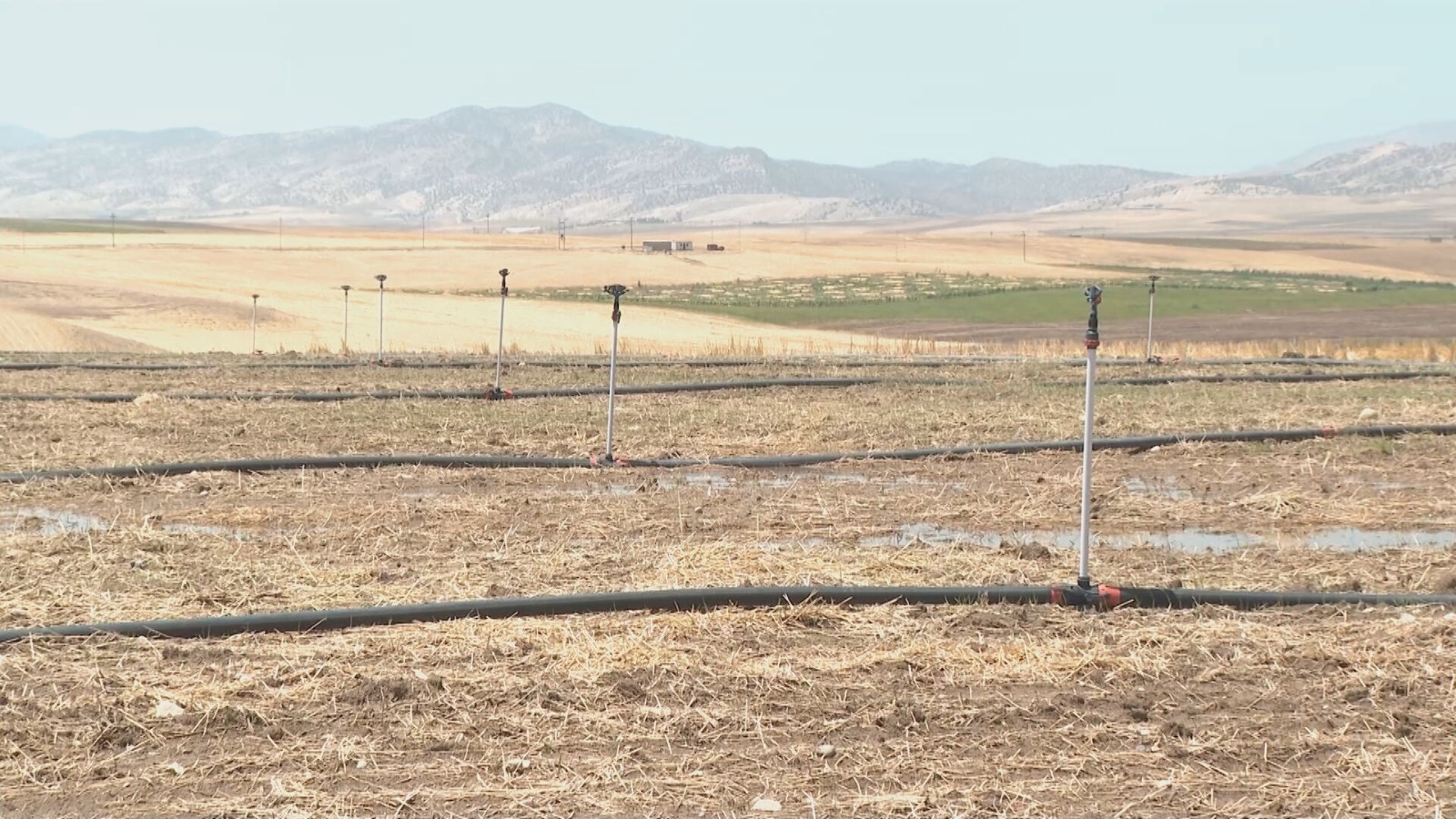Duhok Farmer Pioneers Water-Efficient Rice Cultivation
Duhok farmer Ahmed Amin pioneers rice cultivation using sprinkler irrigation instead of traditional flooding, aiming to cut costs and save water. Early results show promise, with experts seeing potential for sustainable agriculture in the Kurdistan Region amid climate challenges.

By Kamaran Aziz
ERBIL (Kurdistan24) – In a groundbreaking agricultural experiment in the Nawkur Plain of Duhok's Shekhan district, farmer Ahmed Amin is cultivating rice for the first time using a wheat-like method with sprinkler irrigation, departing from traditional flooding techniques to promote sustainable and cost-effective farming in the Kurdistan Region.
After preparing and leveling the land, Ahmed used a sprinkler irrigation system to plant an Egyptian variety of rice on an area of 17 donums.
The fields are irrigated two to three times daily, marking a first for rice cultivation in the region using this technique.
Ahmed Amin, a farmer from Ashkada village, told Kurdistan24: "This is the first time I have planted this type of rice, which is an Egyptian variety. The goal of the experiment is to reduce cultivation costs and water consumption."
He added: "The new method has proven effective initially. If the government and engineers support us, it will be widely adopted because it saves water and electricity."
Agricultural engineers in the Shekhan district confirm that the experiment is promising and could open new horizons for cultivating rice in Kurdistan through more sustainable means.

Anwar Khedhr, Head of Agricultural Extension in the Shekhan district, tells Kurdistan24: "If this experiment succeeds, it will save farmers a great deal, both in terms of costs and water consumption. It will also ease the pressure on the soil and reduce the need to dig deep wells. The initial results are very promising."
According to the initial assessment, the crop has grown well and appears a natural green color, indicating the experiment's success so far.
Experts believe that expanding this method on a larger scale could be an important step toward developing agriculture in Kurdistan, especially in light of climate challenges and water resource shortages.
This agricultural initiative in Duhok represents an innovative response to resource constraints, with farmer Ahmed Amin's use of sprinkler irrigation on 17 donums of Egyptian rice demonstrating potential for reduced water and electricity usage compared to conventional flooding.
Initial positive growth and green appearance suggest viability, as affirmed by local agricultural engineers like Anwar Khidr, who highlight benefits such as cost savings, soil preservation, and decreased well-digging needs.
The experiment's emphasis on sustainability aligns with broader regional challenges like climate change and water scarcity, positioning it as a model for wider adoption if supported by government and experts, potentially transforming rice farming practices in the Kurdistan Region.

Kurdistan24 correspondent Ari Hussein from Duhok contributed to this report.
